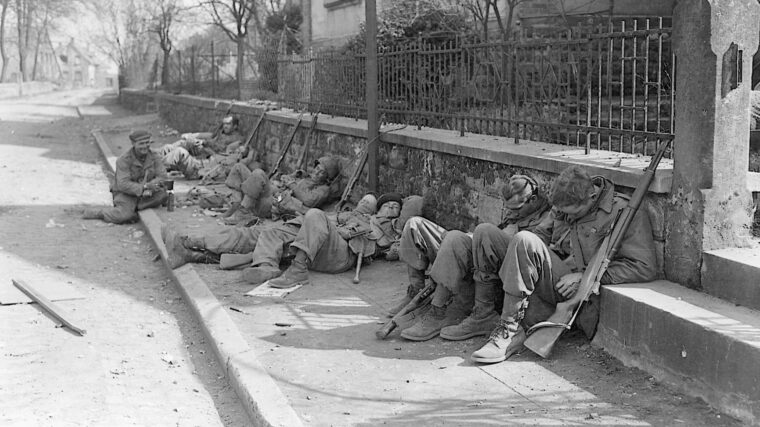
European Theater
Sleep in the Military: Not Dead, Just Dead Tired
By Kevin M. HymelOne of the most precious resources in war, and the one most often in short supply, is sleep. Read more
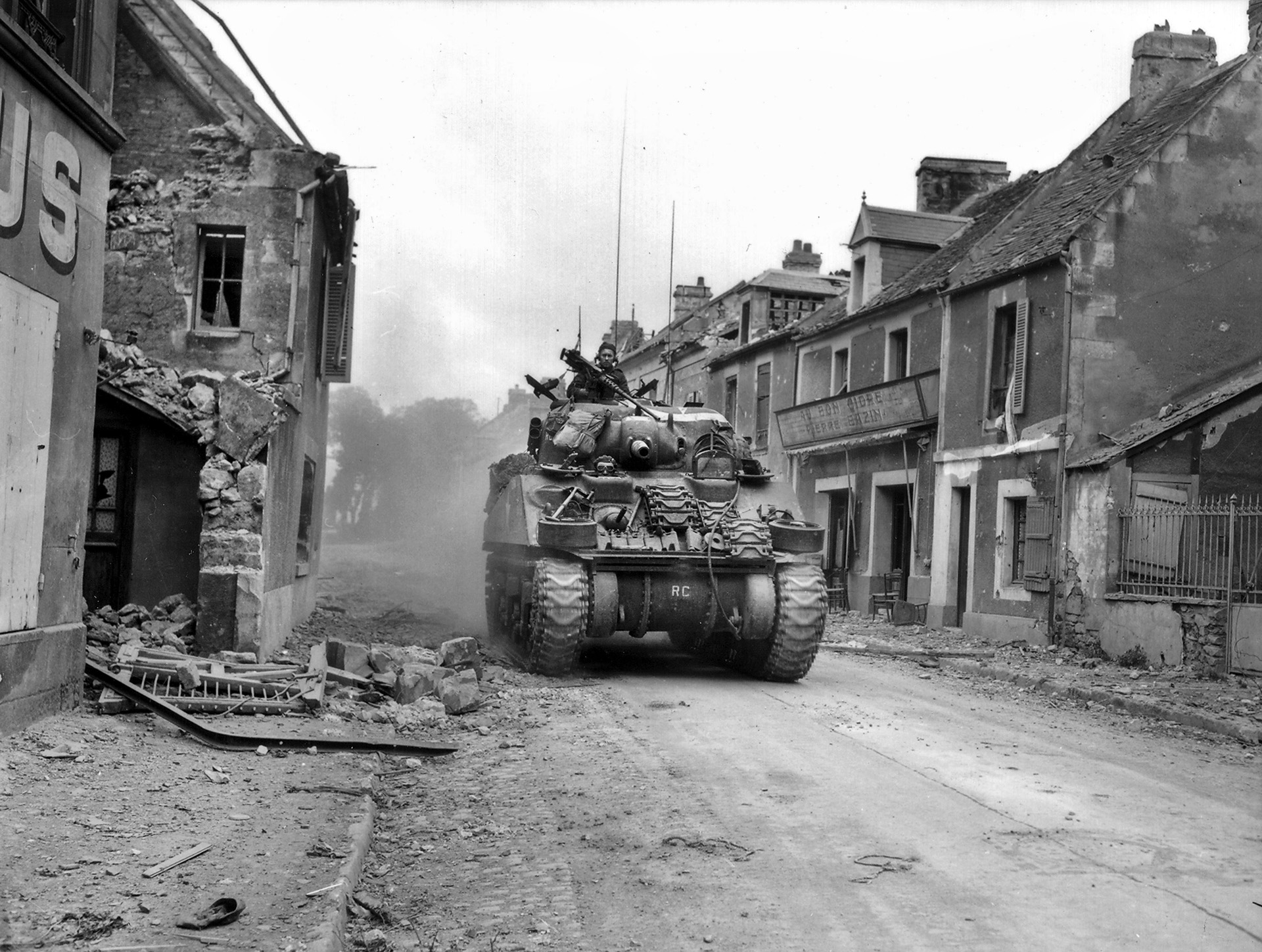
The European Theater of Operations (ETO) during World War II is generally regarded as the area of military confrontation between the Allied powers and Nazi Germany and Fascist Italy. The European Theater encompassed the Atlantic, Mediterranean, Eastern Front, Western Front, and Arctic areas of operation.

European Theater
One of the most precious resources in war, and the one most often in short supply, is sleep. Read more
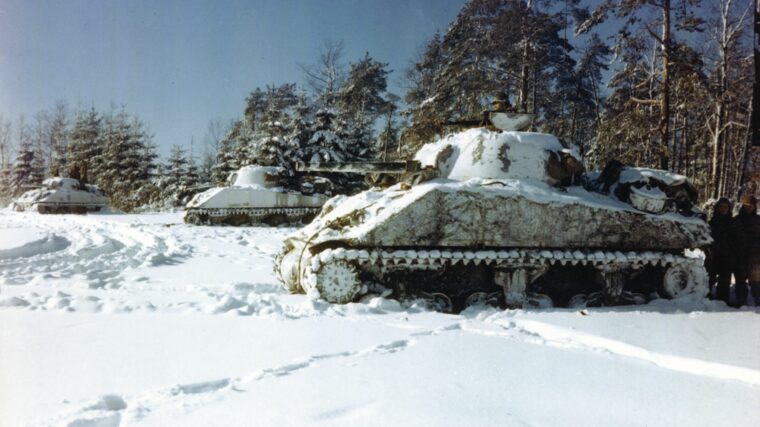
European Theater
The U.S. 9th Armored Division arrived in the European Theater of Operations in late October 1944 as a reserve for Maj. Read more

European Theater
On June 6, 1944, the Allies unleashed on land, air, and sea the largest invasion force in world history in an enormous effort to liberate Europe from Nazi tyranny. Read more
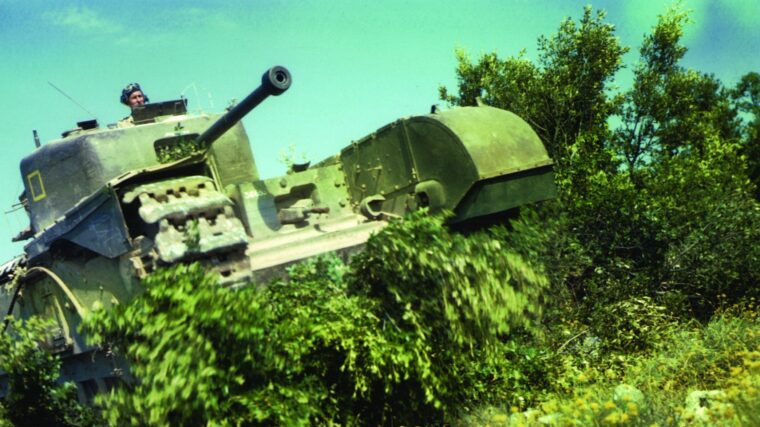
European Theater
The German town of Goch lay east of the Reichswald forest, a scene of heavy fighting for the British Army as it ground its way steadily into the heart of Germany. Read more

European Theater
The story of Hitler’s Bodyguard, the 1st SS Panzer Division Leibstandarte (LAH), in the battle for Bastogne does not begin until after the siege of that city had been raised by the U.S. Read more

European Theater
By February 1945, the green Allied formations that landed on D-Day had become hard professional armies. Army, corps, and division commands had been shaken down and were operating efficiently. Read more
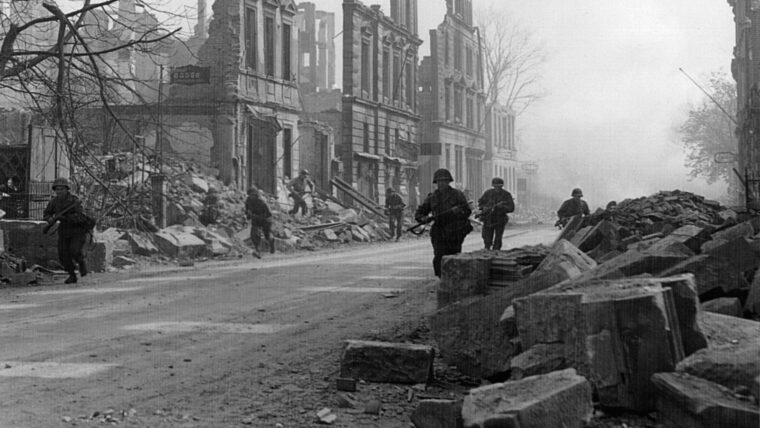
European Theater
Following its swift advance to the Rhine, the American 100th (Century) Infantry Division resumed its pursuit of retreating German forces. Read more

European Theater
After almost two months of bloody and desperate fighting, the Allies had failed to break through the German defenses that had been limiting their hold on Normandy since D-Day. Read more

European Theater
The German crewmen occupied the various stations in their tank as they approached the American roadblock ahead. It was 2100 hours on Christmas Eve, 1944, just outside the town of Manhay, Luxembourg, which was occupied by elements three different U.S. Read more

European Theater
It was loud. It was violent. Gunfire ripped into 1st Lt. Grant G. Stout’s Republic P-47D Thunderbolt fighter high over Dortmund, Germany, near midday on March 19, 1945, and the aircraft trembled and shook. Read more

European Theater
The commander of the U.S. Third Army, General George Patton, Jr., took no great pleasure in the end of the war in Europe; he already knew that despite his lobbying of many influential figures in Washington, D.C., Read more
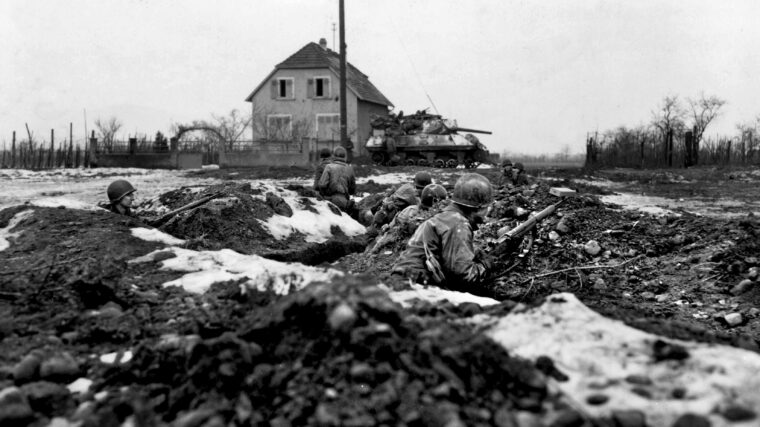
European Theater
On a cold, dark December morning in 1944, B Company, 1st Battalion, 15th Regiment began the slow ascent up Hill 351. Read more
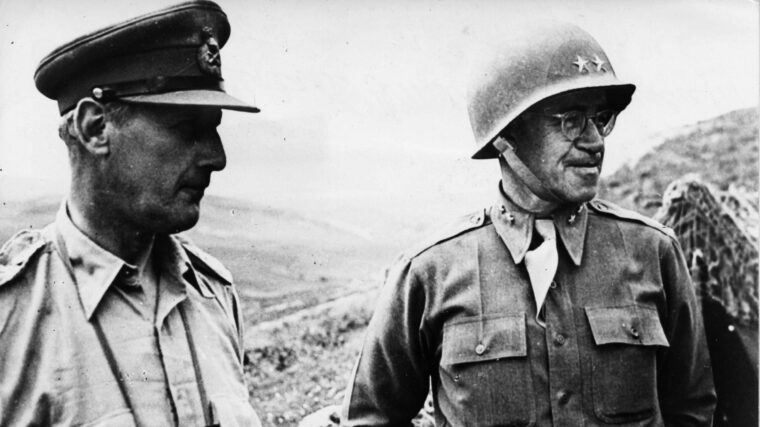
European Theater
Great commanders need great subordinates. In the campaigns in the Mediterranean and European Theaters of World War II, General Dwight D. Read more
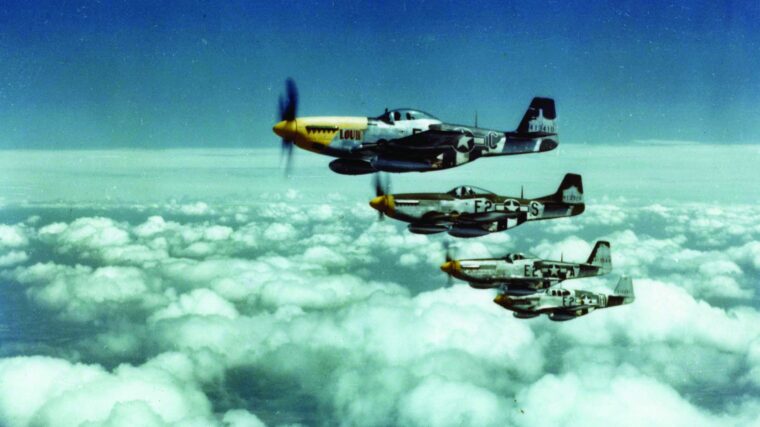
European Theater
If a single airplane has captured the public imagination more than any other, it is undoubtedly the North American P-51 Mustang fighter. Read more
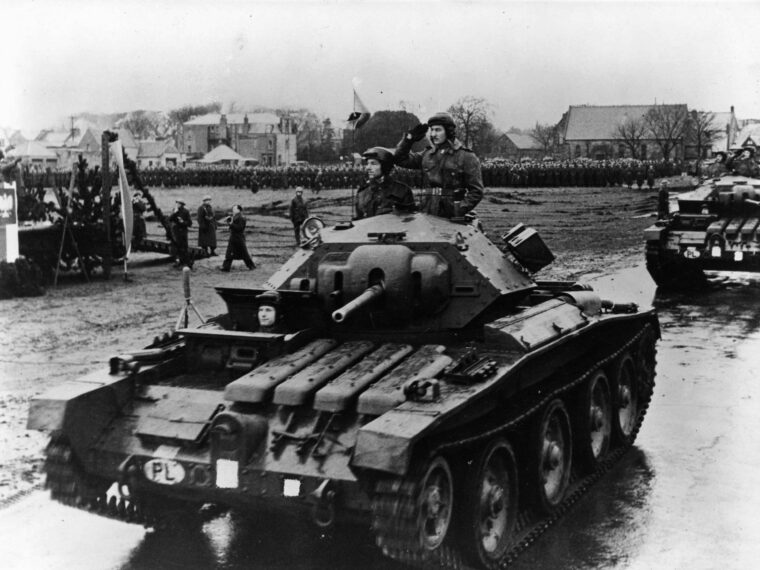
European Theater
The dismemberment of Poland by the German and Soviet armies in September and early October 1939 saw the temporary destruction of the Polish armed forces. Read more
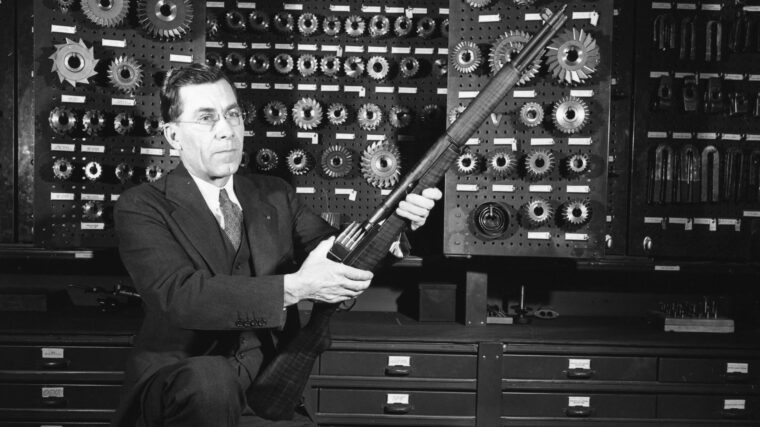
European Theater
A variety of outstanding weapons and pieces of equipment affected the course of World War II for both the Allies and the Axis powers. Read more
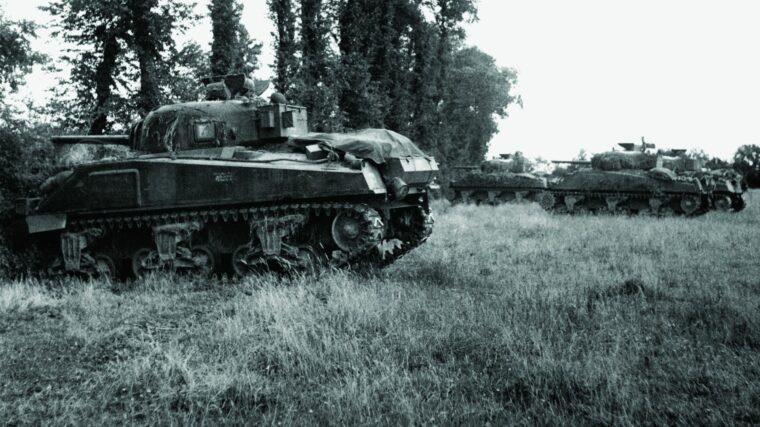
European Theater
The Allied landings in Normandy on June 6, 1944, produced a bitter struggle for control of the invasion beachhead. Read more
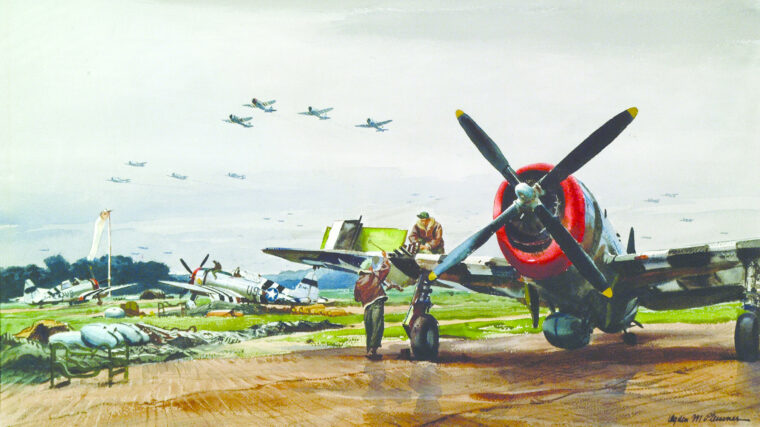
European Theater
Since the end of World War II, the aviation press has made the North American P-51 Mustang into the superstar Allied fighter of the war. Read more
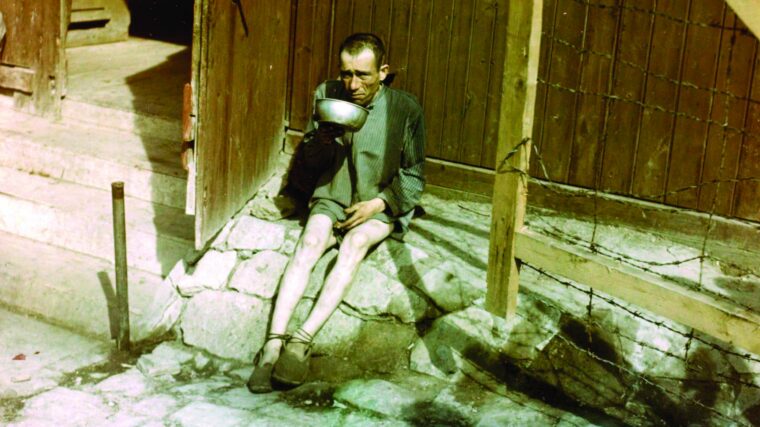
European Theater
When Adolf Hitler became chancellor of Germany on January 30, 1933, the world changed forever.
Not only was Hitler determined to pay back Germany’s enemies for his country’s defeat during the Great War, but he was also determined to rid Germany and the rest of Europe of persons whom his twisted Aryan ideology believed were “inferior” or “subhuman.” Read more
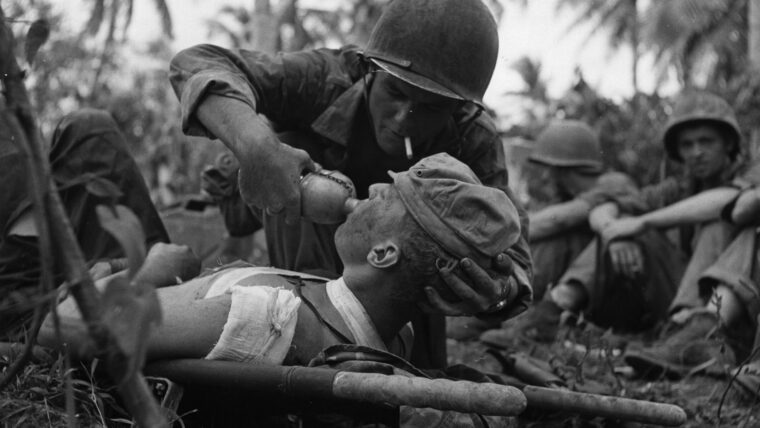
European Theater
For centuries wounded soldiers of every nation were responsible for much of their own care. Medical attention was primitive and often not a high priority for military planners beyond the officer corps. Read more